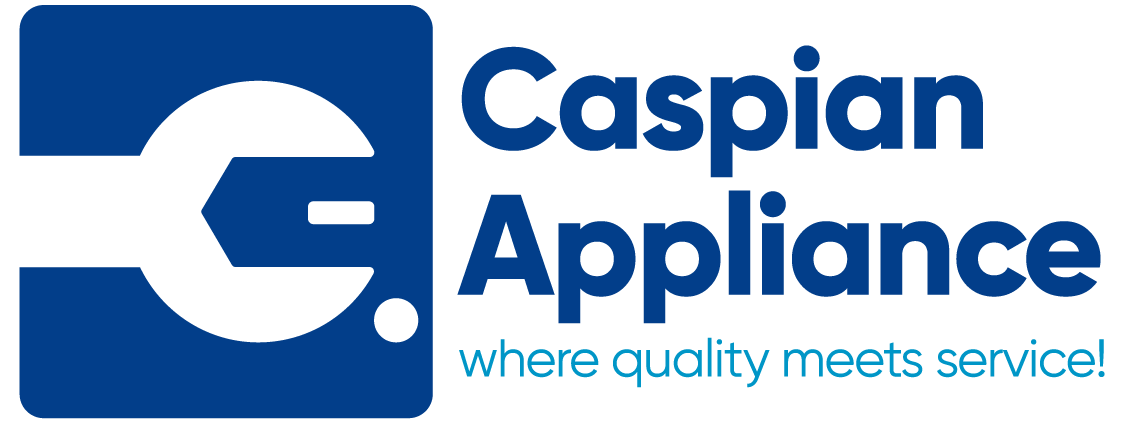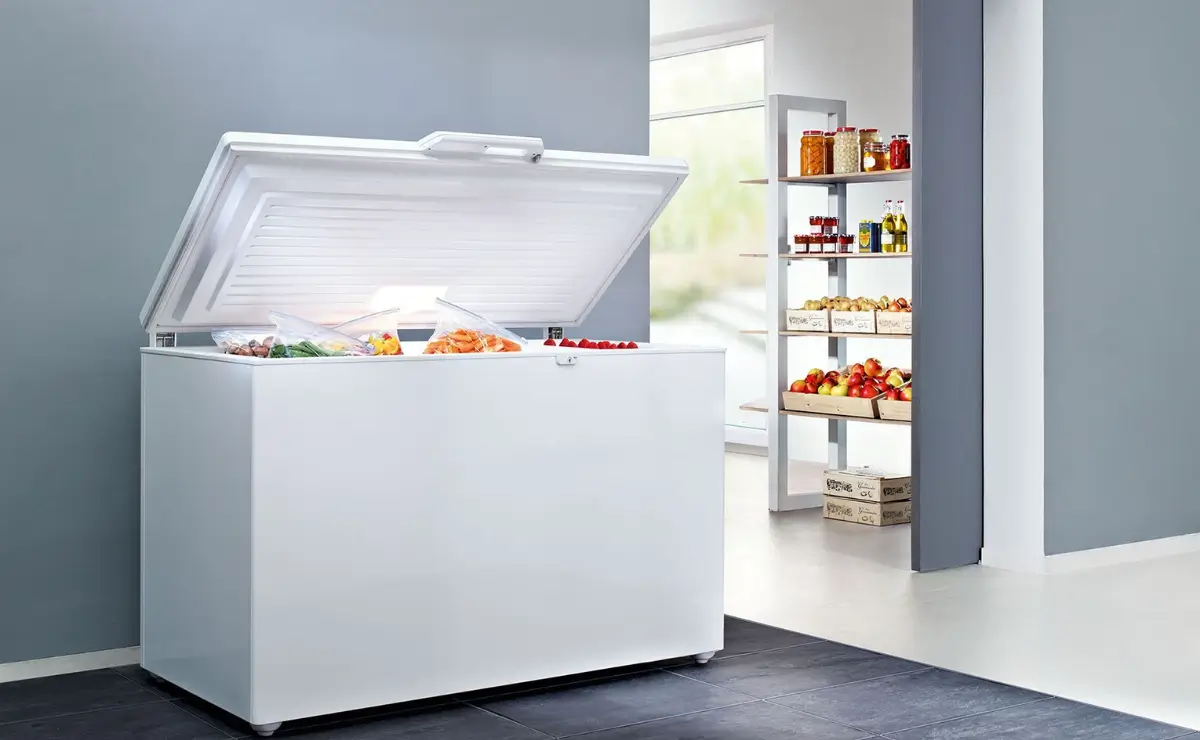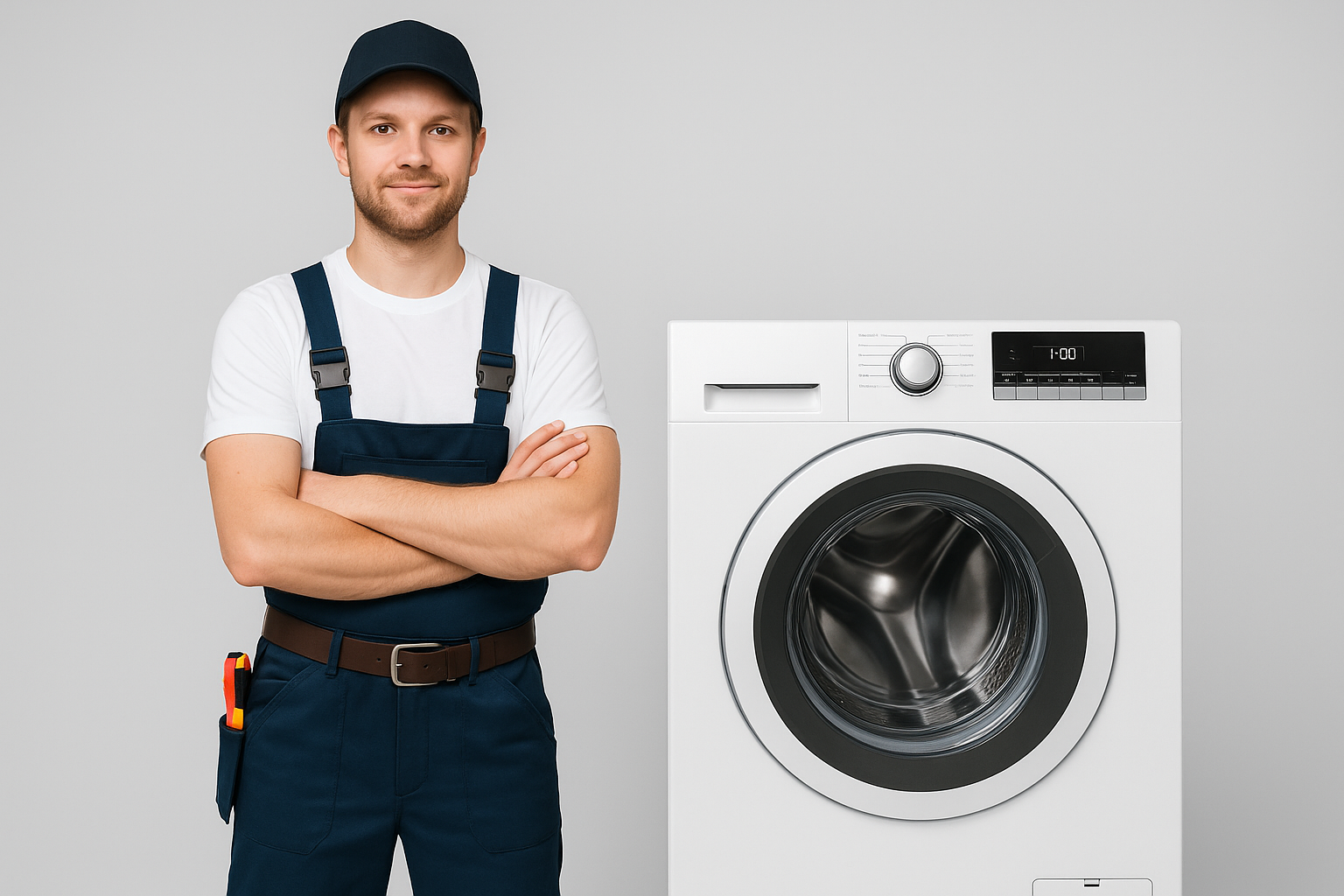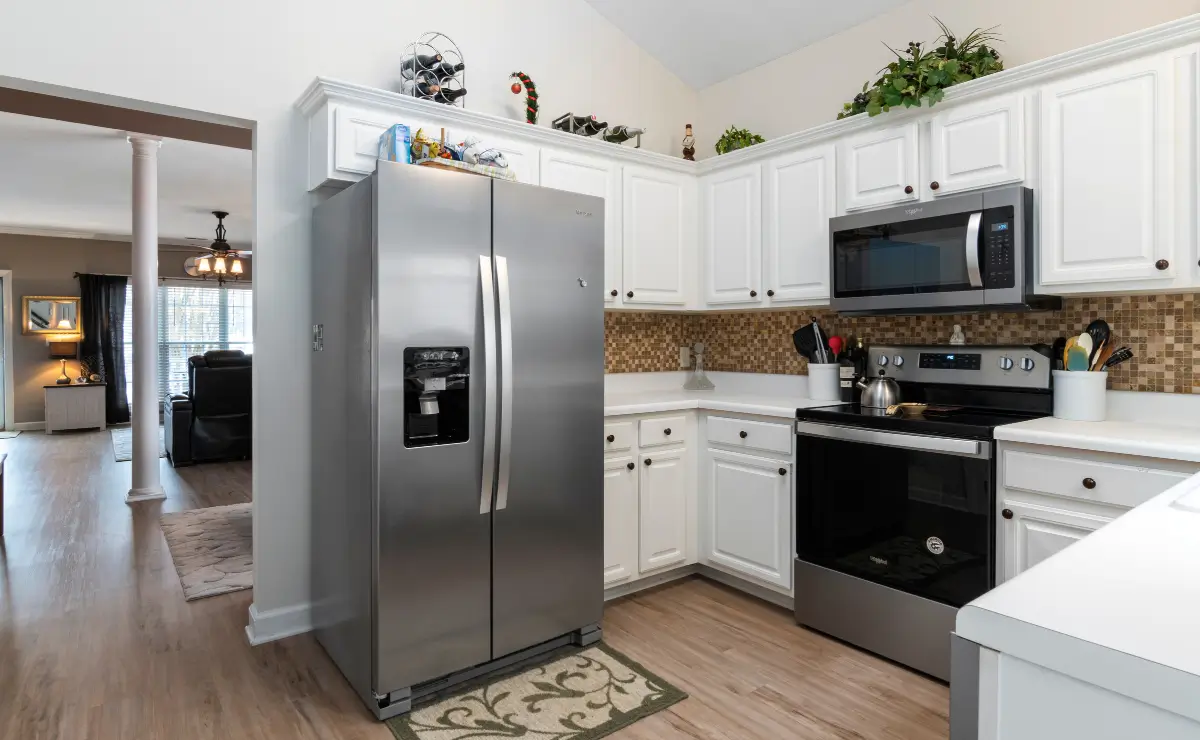Looking for washer repair in Waterloo? If your washing machine stops working, leaks water, or makes unusual noises, it can disrupt your daily routine....
What to Do If the Freezer Is Leaking Water?
Water leakage from the freezer can cause both daily inconvenience and more serious technical malfunctions. Although this situation may cause anxiety for many users, in fact, understanding the reasons behind the problem and intervening in time can be enough to prevent water leakage. When the freezer is functioning properly, it should not leak any water. If you notice water accumulation at the bottom, inside, or around your appliance, this may be due to certain functional and placement issues. Correctly identifying the source of the problem contributes both to reducing technical costs and to the longevity of the freezer. In the following sections, we will explain in detail the causes of water leakage from the freezer, initial measures to take, preventive approaches, and when to contact a specialist.
Main Causes of Water Leakage from the Freezer
There can be several technical and usage-related reasons for water leakage from the freezer. Sometimes, this is simply due to incorrect usage habits, while in other cases, it can be a sign of serious technical malfunctions. One of the most common causes is the blockage of the drainage channel. On the other hand, melting ice caused by power outages or frequent switching on and off can also lead to leakage. Damage to the door gaskets can result in warm air entering, causing condensation inside and leading to water leakage. Improper placement of the appliance or operating it in a tilted position can also prevent the proper direction of water inside. Keeping the door open for long periods or overloading the freezer with food can disrupt the internal temperature balance, resulting in water leakage. Below, we will explain each of these causes separately and in more detail.
Blockage of the Drainage Channel
The drainage channel in freezers is designed to remove water generated during defrosting. However, over time, this channel can become blocked with small food particles, ice fragments, or dust. When the channel is blocked, melted water accumulates at the bottom of the appliance and may leak onto the floor. This can result in water stains around the appliance and even an unpleasant odor. To solve this problem, it is recommended to clean the drainage channel carefully with hot water or a thin, flexible wire. Doing this at regular intervals can prevent blockages.
Water Leakage Due to Melting Ice
Sudden power outages, keeping the door open for long periods, or the appliance malfunctioning can cause the accumulated ice in the freezer to melt, leading to water leakage. In this case, the internal drainage system may be insufficient, and water accumulates at the bottom. If this happens frequently, there may be a problem with the internal defrost system. Therefore, it is important to check the technical condition of the appliance and take measures to prevent ice from melting. The appliance’s optimal operating temperature should also be monitored regularly.
Damage to the Door Gaskets Inside the Freezer
Door gaskets are among the most important parts that ensure the tightness of the freezer. When these gaskets are damaged or worn out, warm air enters, causing condensation and ice melting inside. As this situation continues, water accumulates inside, resulting in leakage. It is recommended to check the elasticity and integrity of the gaskets and to replace any torn or deformed gaskets. At the same time, keeping the gaskets clean is also important to maintain tightness.
Improper Placement of the Freezer
Proper leveling and stable placement of the freezer are essential for its functionality. When one side of the appliance is higher or lower than the other, the natural flow of water inside is disrupted, and it cannot be directed into the drainage system. This leads to water accumulating inside and under the appliance. When placing the freezer, it should be checked with a level device and adjustable legs should be used if necessary. This also helps internal components to work in balance.
Door Being Left Open Frequently and for Long Periods
When the freezer door is left open for long periods or frequently, warm air enters, causing condensation inside. As a result of this process, ice melts more quickly, and water leaks may occur. This problem becomes more pronounced, especially in the summer months. Users should only open the door when necessary and for a short period, closing it quickly. Organizing the products inside so they can be easily found also helps shorten this period.
Excessive Accumulation of Ice or Food Inside
Excessive accumulation of products or ice in the freezer makes internal air circulation difficult. In this case, the cooling system loses its balance, and the melting of ice leads to water leakage. Also, the moisture released by the food can cause water accumulation. Overloading the freezer not only reduces performance but also puts extra load on the drainage system.
What to Do When the Freezer Leaks Water?
When you observe water leaking from the freezer, it is important to correctly identify the cause of the problem and take timely action.
- First, unplug the freezer from the electrical network.
- Clean the leaking area and its surroundings, and carefully check where the water is coming from.
- Check whether the door gaskets are airtight.
- Assess if there is any ice build-up inside and whether defrosting is needed.
- Check if the drainage channel is blocked and clean it if necessary.
- Make sure the freezer is placed on a proper, stable, and ventilated surface.
- Check that there are no additional sources of heat nearby.
- Pay attention to ensure the freezer is not overloaded with products.
- If the problem persists, contact technical service.
While performing all these steps, pay special attention to the safety of both the appliance and yourself.
How to Prevent the Freezer from Leaking Water?
Taking preventive measures to avoid water leakage from the freezer is very important. These measures not only help keep the device functional but also preserve energy efficiency and prevent possible water damage in the home environment. Regular technical maintenance, cleaning internal parts, and proper usage habits play a key role in this regard. Especially defrosting, that is, the process of melting the ice, should be carried out regularly to prevent excessive ice build-up in the appliance. If ice accumulates in a thick layer, it reduces the cooling quality and creates conditions for water leakage. The products inside the freezer should be arranged so as not to obstruct the airflow and so that cooling is evenly distributed in all compartments. Overloading disrupts air circulation and causes the appliance to work harder.
Make sure the doors are closed tightly, the gaskets are protected from damage, and kept clean. Regularly checking the elasticity of the gaskets is important to maintain airtightness. At the same time, the place where the freezer is located should be well-ventilated, away from sunlight, and have a flat surface. The ventilation holes at the back should not be blocked, and there should be enough space around the appliance. It is also important to ensure the appliance is working properly after power outages. If these preventive rules are followed, the lifespan of the appliance increases and problems such as water leakage can be effectively prevented.
The Importance of Regular Technical Maintenance
It is recommended that freezers undergo technical inspection several times a year to ensure long-term, trouble-free operation. During these inspections, the operation of the drainage system, thermostat, and fans is checked. If any malfunction is detected early, it can be resolved more cheaply and easily. This approach saves energy and prevents water leakage. During technical maintenance, the electrical connections, gas level, and other mechanical parts should also be checked.
Preventing Overloading
Proper placement of products inside the freezer ensures free movement of air and helps all products cool evenly. There should be space between food items so that cold air can reach everywhere. It is advisable to place large and heavy items at the bottom and smaller items at the top. Avoid stacking products too tightly, as this may hinder the efficient operation of the freezer.
Regular Cleaning and Defrosting
The accumulation of ice inside the freezer increases energy consumption and causes water leakage. For this reason, the inside of the appliance should be emptied and cleaned once a month. During cleaning, the ice should be allowed to melt naturally and ice should not be broken with sharp tools. Also, internal surfaces should be wiped with a soft damp cloth and dried. This not only maintains hygienic conditions but also prevents leakage.
Placement Conditions and Ventilation of the Freezer
The freezer should be placed in a well-ventilated area, away from direct sunlight, and on a stable surface. When placed near heat sources, the appliance has to work harder, which causes condensation inside. It is necessary to make sure that the ventilation holes at the back are not blocked. Keeping at least 10 cm of space around the appliance ensures efficient operation. This means both energy savings and a reduced risk of leakage.




